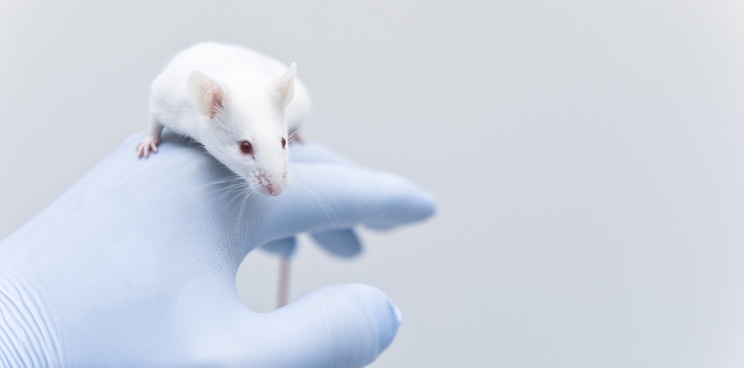Newsletter Signup - Under Article / In Page
"*" indicates required fields
The UK Supreme Court has supported an appeal by British biotech Kymab to revoke antibody drug patents held by US giant Regeneron, a decision that could make it harder for big patent holders to clamp down on small innovators in the biotech industry.
Kymab and Regeneron have been battling it out in the UK since Regeneron took the Oxford-based biotech to court in 2013. The dispute is centered over Kymab’s alleged infringement of two Regeneron patents on the use of genetically engineered mice to produce antibody drugs, called the ‘Murphy’ patents.
Specifically, the Murphy patents relate to a genetic modification called a reverse chimeric locus. The modification is designed to overcome a common problem when mice are engineered to produce human antibody drugs: the production of antibodies using human genes can make the animals sick. The reverse chimeric locus technology involves having mice produce part-human and part-mouse antibodies that don’t make the animals sick. The antibodies can later be reformatted into fully human antibodies to make them ready for use as a treatment.
Initially, Regeneron sued Kymab for infringing on its Murphy patents with Kymab’s genetically modified animals. Kymab responded that the Regeneron patents were invalid on the grounds of a legal concept called ‘sufficiency’ — where the patent must contain all of the information necessary for a skilled person to reproduce the invention.
In particular, Kymab argued Regeneron’s claims were too broad and that the patents did not contain enough information, when combined with the general knowledge already available to the public, for a skilled person or team to make the full range of genetic modifications claimed on the patent.
In 2018, the UK Court of Appeal upheld Regeneron’s patents. But Kymab took the case to the UK Supreme Court in February this year, where the latest decision, supported by a majority of four to one, has landed in favor of Kymab.
UK Supreme Court judge Lord Briggs, who gave the leading judgment, said: “The sufficiency requirement is a basic principle of UK and European patent law… it is too important and too deeply established a principle now to be disregarded or watered down, even in the case of an important scientific invention such as this one.”
The outcome of this legal battle has big implications for the biotech industry. For one, it potentially opens up the use of these engineered mice for the development of antibody therapies. It could also affect how biotech companies file for patents in the future, highlighting the dangers companies face when filing aspirational patents that are not proportional to their technical contribution.
Companies must therefore walk a fine line between filing patents too early and risking challenges due to unsubstantiated claims and filing too late and losing their competitive advantage.
Kymab CEO Simon Sturge told me he felt “absolute elation” over the judgment, which has been rumbling through the courts for seven years.
“Had the judgment gone the other way, then I think for the technology industry in the UK, universities, etc., it would have been really stifling,” he said.
“The important thing about this judgment is that it would have blocked other people from making inventive steps if this ability to have claims that would not have been substantiated was allowed to go through.”
In a public release, Regeneron noted that this latest decision only affects its patents in the UK, and that they are still in effect in the rest of Europe. It’s also sparring with Kymab in other parts of the world including the US. Earlier this year, the US Patent and Trademark Office’s Patent Trial and Appeal Board decided to rule in Kymab’s favor by upholding patents disputed by Regeneron.
Nicole Jadeja, a life sciences lawyer at Pinsent Masons, told me that the UK decision was “much awaited” and “has real, practical implications for future patent filing strategies for those in the life sciences industry and, in particular, for biotechs.”
“This is… a stark reminder to patentees that any period of exclusivity is granted in return for disclosing enough information about the invention,” she explained.
Neil Jenkins, who focuses on litigating patents at international law firm Bird & Bird, added: “In terms of the implications for patentees and the biotech industry, it seems clear that the decision indicates that the English courts should not be reluctant to knock out broad claims to a range of products if the patent does not teach the skilled person how to make substantially all of them regardless of the groundbreaking nature of the idea or invention giving rise to the claimed products and the benefits obtained from them.”
Image from Shutterstock






